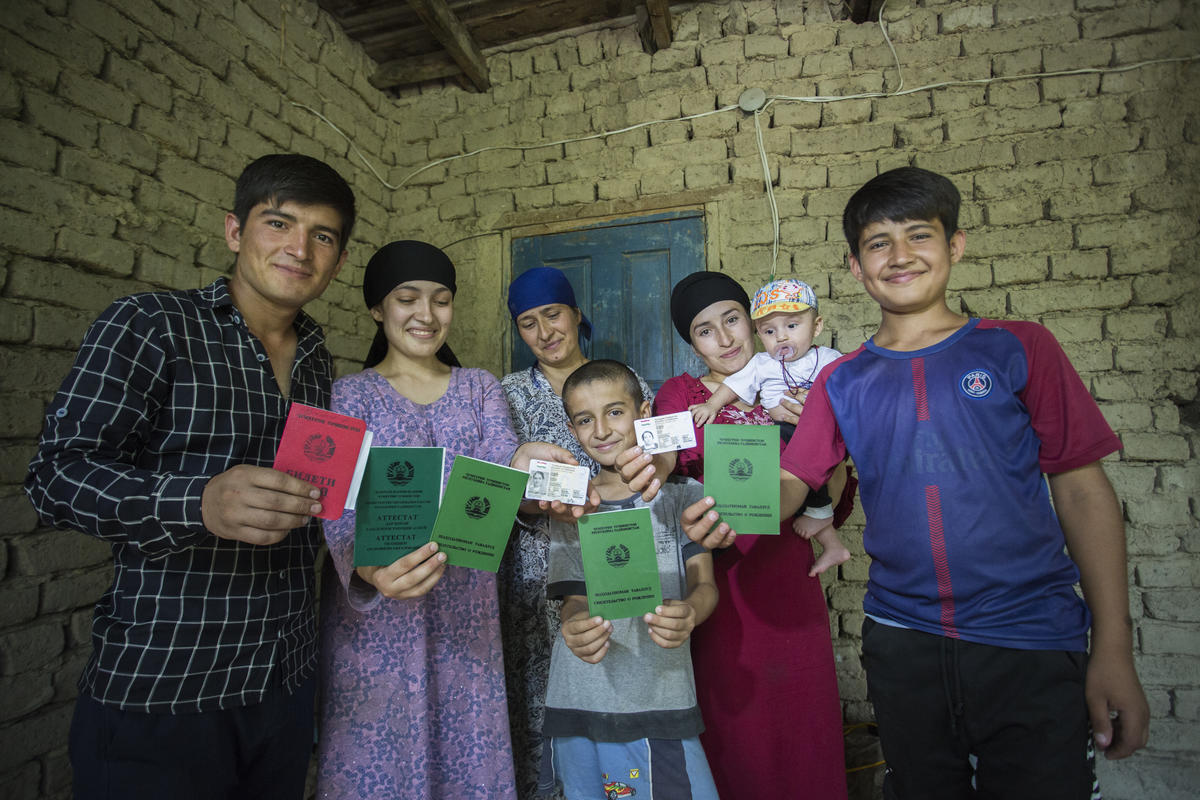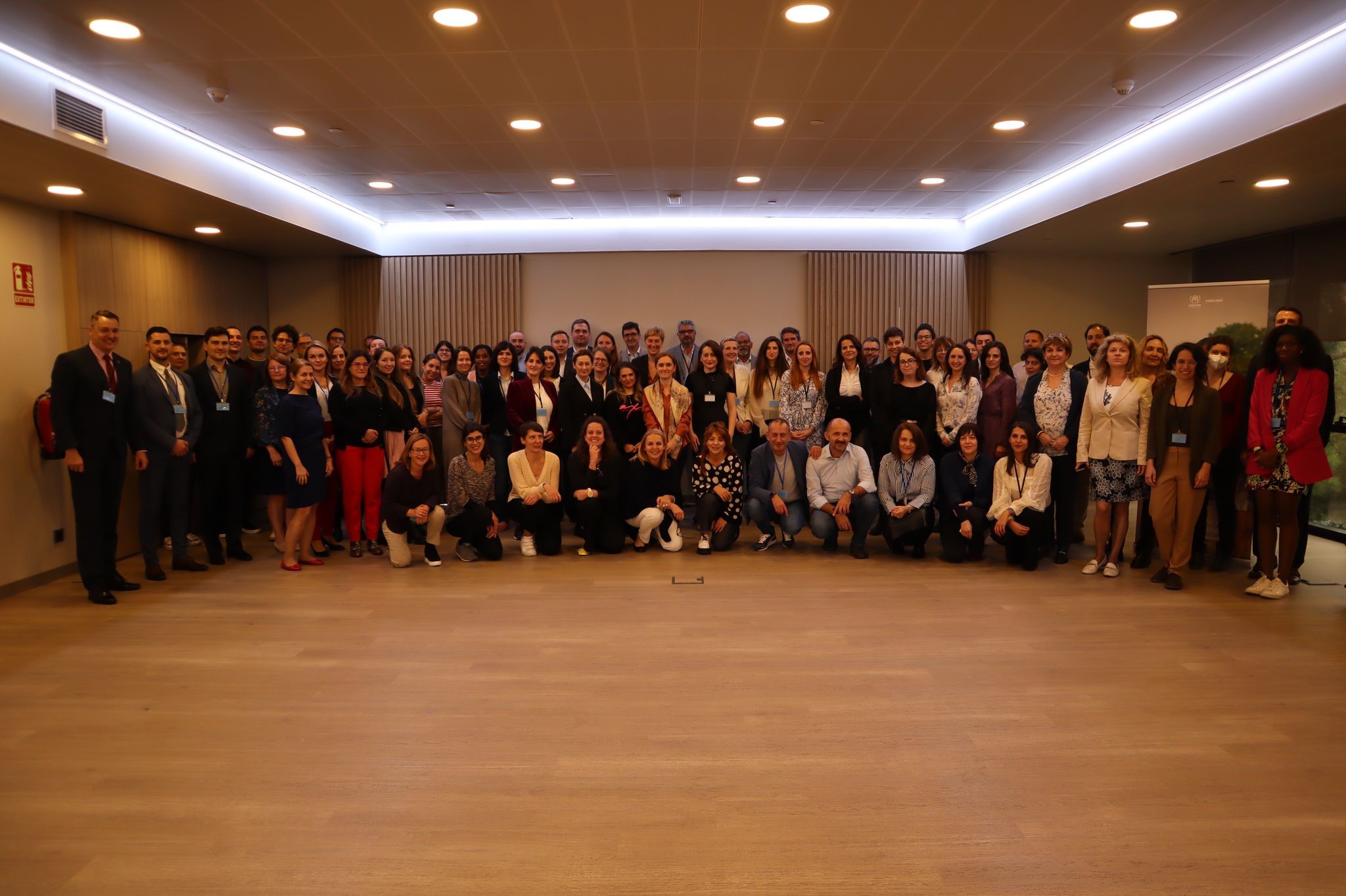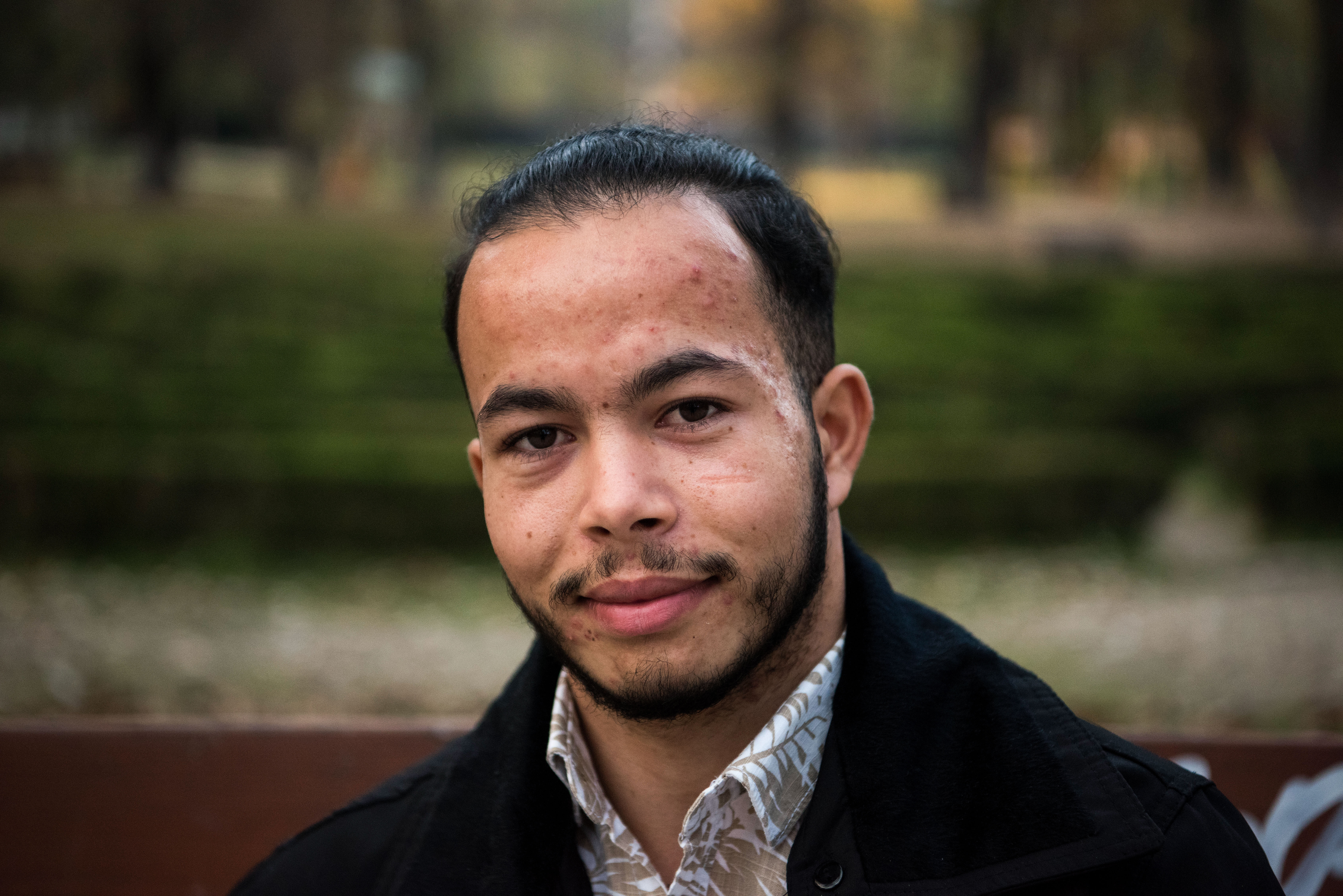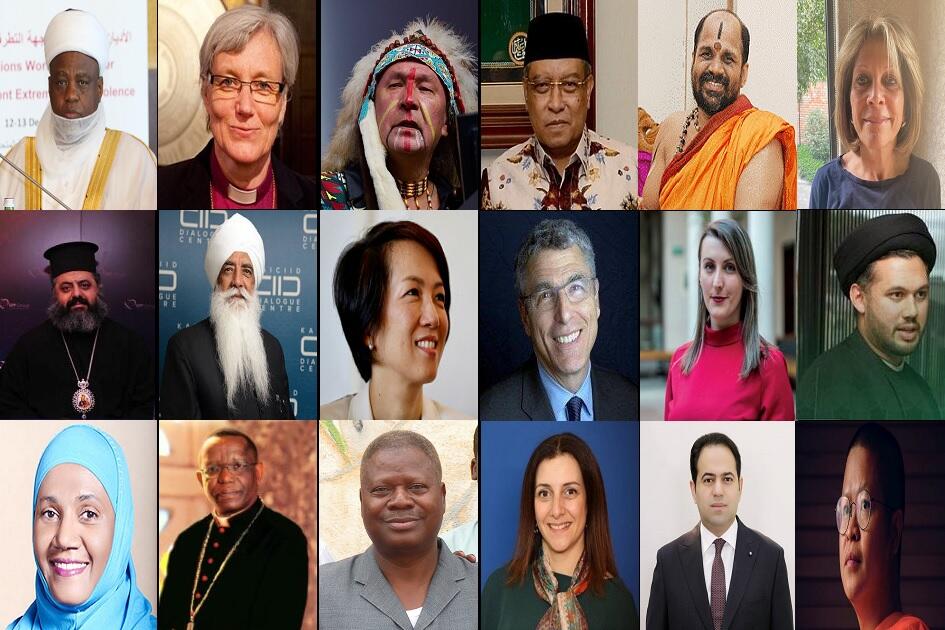UNHCR mobilizes lawyers to combat statelessness in Montenegro
UNHCR mobilizes lawyers to combat statelessness in Montenegro

PODGORICA, Montenegro, May 31 (UNHCR) - Bursting with energy, Hadzi and Maksum Miftari grin at visitors from the family living-room sofa before rushing outside to play with their friends. They seem full of life, but in legal terms the boys practically did not exist in their birthplace Montenegro or anywhere else until recently.
It seems inconceivable that bureaucratic red tape could have derailed the hopes and potential of Hadzi, aged six, and his four-year-old brother, Maksum, whose parents fled to Montenegro from Kosovo in 1999 to escape persecution based on their Roma ethnicity.
But that almost happened until UNHCR brought in lawyers to register their births and obtain proof of nationality - essential for getting access to basic rights such as education, health, employment and even marriage. Hundreds of other members of the minority Roma, Ashkaelia, and Egyptian people in Montenegro have not been so lucky.
The two boys were entitled to Serbian nationality through their parents, who were born and bred in the province of Kosovo. They failed to register their sons immediately after birth and later found themselves caught in a bureaucratic maze.
"I tried to register Hadzi about two months after he was born, but [the registry office] asked to see my marriage certificate," said the boy's father, Idrizi Miftari. Municipal registry offices throughout the former Yugoslav Federation kept marriage records and regularly issued copies of marriage certificates, but Idrizi was married in the western Kosovo town of Djakova and was told that his records had been lost during the conflict of 1999.
He travelled to Serbia in the hope that the records had been transferred there by Serbian civil servants fleeing Kosovo after NATO (North Atlantic Treaty Organization) forces entered the territory in June 1999 and placed it under United Nations administration. Idrizi had no luck there either and returned to his family in Podgorica's impoverished Konik neighbourhood.
The Miftaris had almost given up hope of registering their sons when UNHCR stepped in last year by focusing a US State Department-funded legal aid programme on Roma, Ashkaelia, and Egyptian families in Konik who were missing important documentation.
UNHCR's implementing partner, Catholic Relief Services, hired an outreach assistant from the community and he informed locals of their rights and offered free legal assistance. The assistant was soon approached by the Miftaris.
The lawyers got round the problem of the missing marriage documents by using hospital records as proof of birth. The registry office accepted this and issued them with birth certificates that they used to certify the boys' Serbian nationality.
The case of Hadzi and Maksum is one of many success stories registered by UNHCR's legal aid programmes in the Balkans region, but there is still much more to be done to help people left at risk of statelessness due to problems over civil registration or a lack of documentation.
These cases are time consuming and can involve complicated representation in administrative and judicial proceedings. They also require close coordination between legal aid providers throughout the region. Yet this work is vital for both stateless people and the countries in which they live.
"Without proof of citizenship, people slip through the cracks in society and they are cut off from important rights," said Maja Lazic, coordinator for UNHCR's regional legal aid project. "Conversely, without registered, documented inhabitants, states are unable to effectively govern their populations."
UNHCR's legal aid implementing partners have assisted thousands of displaced persons in Montenegro since 1998. They are focusing increasingly on the issue of statelessness and, since November last year, have helped 146 people in Montenegro obtain proof of birth and/or nationality.
The refugee agency is trying to better assess the number of people at risk of statelessness in Montenegro in order to develop a comprehensive and lasting solution to the problem. By some estimates, up to 6,500 members of the Roma, Ashkaelia, and Egyptian population may be at risk due to lack of documents.
Solutions will lie in continued legal assistance and outreach campaigns, as well as advocacy for a more active, open and transparent approach by the state bodies responsible for birth registration. They will also lie in improved access for displaced persons to documentation in Serbia. UNHCR hopes this will be achieved through legal aid providers and digitalization of documents held by municipal registries in Serbia.
Hadzi and Maksum, meanwhile, seemed delighted with their newly acquired proof of nationality, which they will need to access civil, economic, social, and political rights. Once they realized that UNHCR visitors were not doctors come to vaccinate them, the boys proudly showed off their birth certificates.
By Gordana Popovic and John Palmer in Podgorica, Montenegro








